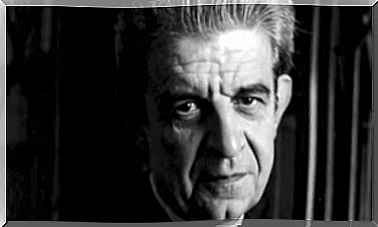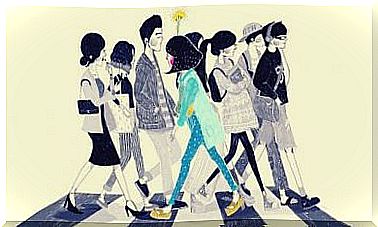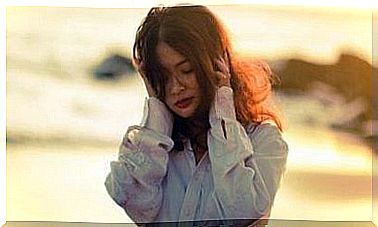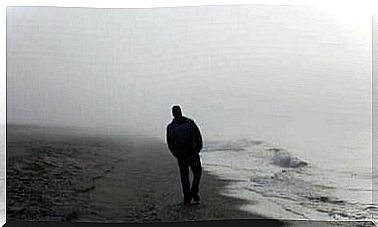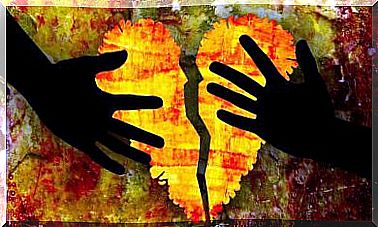“How Are You? “: That Phrase Everyone Loves To Hear
A “How are you?” accompanied by a sincere smile and a welcoming look while waiting for a response is therapeutic and comforting. Sometimes, no need for more, because it only takes two magic words to feel that you are safe and sound, connected to someone who matters and welcomed with the five senses of the heart to realize that everything will be fine no matter what.
Evolutionary psychology, as curious as it seems, has a lot to say in this subject. In this current, we defend the idea according to which the human being has developed his social intelligence by promoting the care and protection of the members of the group and by rejecting the hunter or the gatherer who was “ free ”, the individual who did not cooperate, who saw only his own profit by refusing or not supporting his fellow men.
“The deepest principle of human character is the desire to be valued, recognized and valued.”
-William James-
The multiple archaeological and ethnographic researches also show us that in the beginnings of our agriculture, peaceful cooperation and altruism were usual. That thanks to them, we have undoubtedly been able to advance as a species. Likewise, it is evident that the Neanderthals cared for their elders with delicate attention. They honored them without expecting anything in return, and then they performed burial ceremonies full of emotional and religious symbols.
All this clearly shows us that taking care of others, listening to them, caring for them… is surely what makes a specific species, a social group, the most worthy. Any behavior intended to provide relief, support or attention has a positive impact on our physical and psychological well-being, helps us to survive, to connect with one another in a transcendent and meaningful way.
That’s why a “How are you?” spoken sincerely or in writing, even in a message, can do a lot more than you think …
I’m here to help, I’m here for you and I’m not going to ask for anything in return
David Graeber is a famous anthropologist who gained notoriety through his social activism. One of his most recurring theories is the one in which he focuses his critical vision on how money and the economy completely destroy our primitive altruism, our “gene” for cohesion, for this essential union between human groups. which preserves our survival, our well-being and our harmony.
To justify this idea, Graeber tells us about the Inuit of Greenland or Iroquois. He explains that in these communities there has always been not only a sincere concern for one another, but also that the idea of paying for a service or even the obligation to reciprocate is not conceivable. As the Inuit say: “ In our country, we are human and we care about each other.” If anyone needs shoes, they just have to ask. If a hunter has not had a good day, his neighbors will share their meal with him / her.
As we see, in the past and in some present societies there are groups of people who base all their interactions on altruism and an intrinsic, genuine and constant interest in this human being who, like oneself, goes through difficulties, needs, fears, hunger, loneliness etc. There is therefore a sincere desire to look beyond the small island of the ego to resolve individual boundaries and thus appreciate the other as a part of oneself.
Something that, without a doubt, we should put into practice more in our advanced and seemingly “advantaged” societies.
A “How are you?” therapeutic, which goes beyond formalities
Admit it, the most common expression in polite parlance today is the classic “How are you?” We “let go” without waiting for a response, as if to start a dialogue where we rarely wait for the person to answer us sincerely, because we hardly leave time for their response or because, quite simply, we prefer formalities to sincerity, appearance with emotional authenticity.
In this society of incommunication, as Eduardo Galeano would say, it would seem that we have forgotten this principle of humanity of the Inuit or of our most primitive ancestors. More than shoes, more than dinner or clothing, what we need is support, consideration, closeness, interest and care.
We need sincere words and people who are interested in us, who listen to us. We want that behind a “how are you?” There is a silence, an expectation and a gaze that conveys the confidence necessary to open up, and to confide in one’s most hidden black holes.
You should know that it is not necessary for something in particular to occur to need this therapeutic dialogue capable of promoting emotional liberation. Most times, that “how are you?” embellishes our day, makes us feel good, as if we were part of a whole, which would bring together luminous pieces of a great gear through which life acquires more meaning, more authenticity.
Let us not neglect our own, do not fall into simple formalisms and practice the art of consideration, recognition and reciprocity. Let’s practice the “how are you?” on a daily basis by genuinely caring about the well-being of the people who matter to us.
Also read:
Images by Clare Elssaeser

